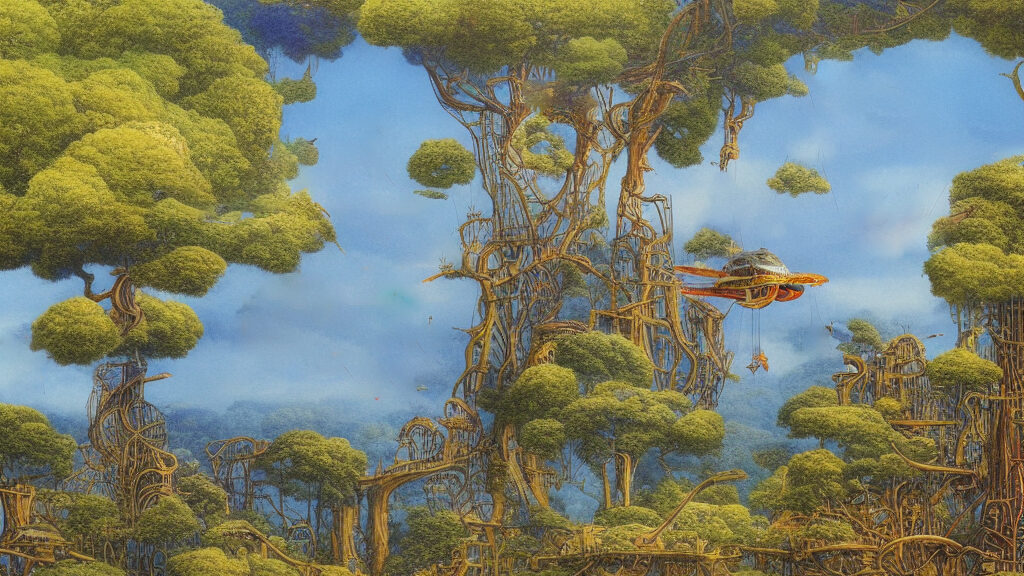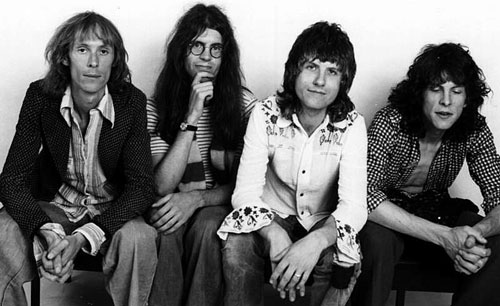Canterbury is a progressive rock subgenre that was developed in the UK. Initially, the Canterbury scene included pop, rock and blues bands, and musicians living in or near Canterbury (southeastern England) in the late 1960s and early 1970s. These artists became interested in contemporary jazz, psychedelia, and a new innovative form of rock that evolved into progressive rock.
Notably, one of the seminal acts was a band called Wilde Flowers that initially played pop and rhythm and blues. From 1963 to 1969, the Wilde Flowers included most of the musicians who later formed Canterbury’s two best known bands, the jazz-rock leaning (The) Soft Machine (Robert Wyatt, Kevin Ayers, Hugh Hopper) and iconic progressive rock band Caravan (Pye Hastings, David Sinclair, Richard Sinclair, Richard Coughlan).
Australian musician Daevid Allen spent time at Robert Wyatt’s home and was one of the main instigators that drove the Wilde Flowers to evolve into a jazz rock band called Soft Machine.
The essential early Canterbury bands and artists include Soft Machine, Caravan, Gong, Robert Wyatt, Kevin Ayers, Hatfield and the North, Egg, National Health, Bill Bruford’s early solo works, and Steve Hillage. Most of these musicians combined virtuosic rock with jazz improvisation, intelligent songwriting and various degrees of psychedelia.
As with other progressive rock groups, some Canterbury acts added folk, classical music and other elements.
Even though several high profile guitarists played in Canterbury acts, the keyboard is the most significant musical instrument. Electric piano, electric organ and synthesizers were the lead instruments for many bands like Caravan, Hatfield and the North, Egg, and National Health.
In the 1970s, British Canterbury bands influenced artists in mainland Europe, including Gong and Moving Gelatine Plates (France), Supersister (Netherlands), Daedalus (Italy), and Cos (Belgium).
Musicians in various countries have continued to release recordings inspired by the early Canterbury pioneers. Sometimes known as Neocanterbury, these additional artists include Zopp (UK), French TV (USA), Guranfoe (UK), Panzerpappa (Norway), François Thollot (France), Needlepoint (Norway), The Worm Ouroboros (Belarus), Alco Frisbass (France), Forgas Band Phenomena (France), SKE (Italy), Conqueror (Italy), Homunculus Res (Italy), and Magic Bus (UK), among many others.
(headline photo: Hatfield and the North)
Essential Canterbury Albums
Caravan – If I Could Do It All Over Again, I’d Do It All Over You (Decca, 1970), In the Land of Grey and Pink (Deram, 1971), Waterloo Lily (Deram, 1972), For Girls Who Grow Plump in the Night (Deram. 1973) and Caravan and the New Symphonia (Deram, 1974).
Egg – The Polite Force (Deram, 1971)
Gong – Radio Gnome Invisible Vol. 2 – Angel’s Egg (Virgin, 1973) and Radio Gnome Invisible Vol. 3 – You (Virgin Records, 1974)
Hatfield and the North – Hatfield and the North (Virgin Records, 1974) and The Rotters’ Club (Virgin Records, 1975)
Steve Hillage – Fish Rising (Virgin Records, 1975)
Khan – Space Shanty (Kingdom Records, 1972)
National Health – National Health (1978) and Of Queues and Cures (1978)
Soft Machine – Third (CBS, 1970)
Supersister – To The Highest Bidder (Polydor, 1971)
Moving Gelatine Plates – The World Of Genius Hans (CBS, 1972)
Robert Wyatt – Rock Bottom (Virgin Records, 1974)
Zopp – (Bad Elephant Music, 2020)

